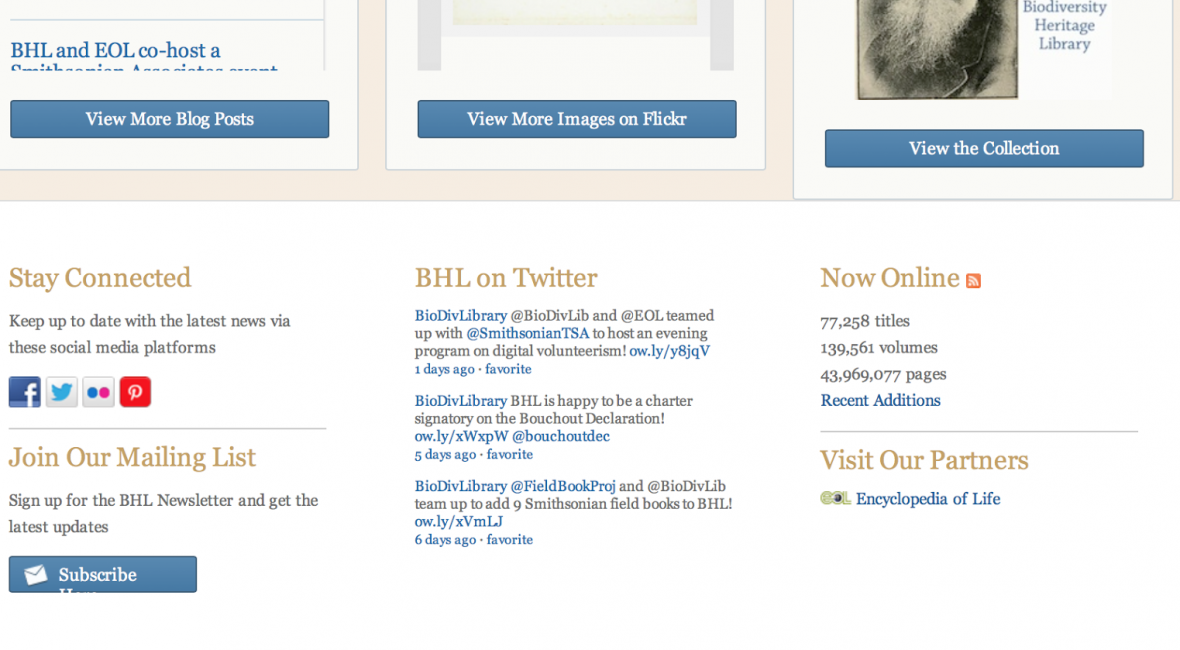If you’re active in social media, chances are you’ve already discovered our presence on a variety of platforms, including Facebook, Flickr, Pinterest and Twitter (for a list of all of our social media accounts, visit our public wiki). You can now also see linked icons to each of our social media platforms on the lower left-hand side of BHL’s home page.
Continue reading








